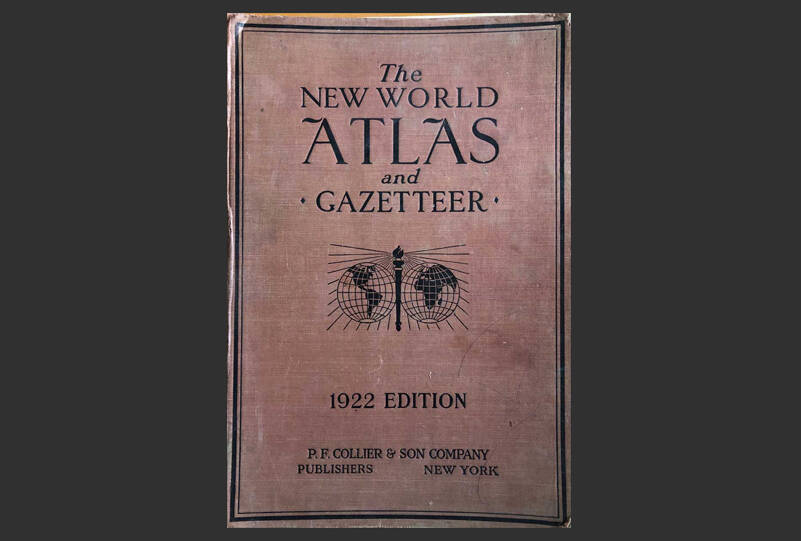By Morf Morford, Tacoma Daily Index
I’m currently reading a book published in 2006.
It’s a very good book by a prominent author and full of ideas and perspectives that, for most readers would challenge and entice further reading on the subject.
But the problem is that most of it was written in the few years preceding 2006. A few chapters were written as early as 1999. That, of course was only a few years from 2006, but a lifetime, or two, from 2022.
Many of the book’s core assumptions, of the past, the future, politics, technology, economy or culture, though barely mentioned, seem, in the harsh light of the early 2020s, naive, shallow or even preposterous.
You might think you would need to read Shakespeare or The King James Bible to encounter archaic, stilted language (in your own tongue) that you can barely make sense of and, even though the words may (or may not) feel familiar, you know that what the writer intended and what we, as readers understand, is not even remotely similar.
Nope, you don’t have to go back to 1611 to find obscure texts and documented assumptions about money, progress and destiny – among many other things – that seem like simplistic, even pre-teen, fantasies. You could just go back to almost any non-fiction book written before about 2015.
In other words, in many ways, from politics to technology to the way we talk to and define each other has changed almost as much in the past ten years as in the previous 400 years.
Thou shalt not give him thy money upon usurie, nor lend him thy victuals for increase. – Leviticus 25:37
The above verse, though a bit awkward, has two principles that, in that culture and economy were core to decent and civil enduring behavior and commerce.
The first was that “usury” (we would know it as interest) should not be charged on a loan. And the second section refers to the idea of making a profit from someone’s hunger – or any other need.
In other words, a living, if not wealth, should not be, at least in a stable, civil society, based on the need if not desperation of others.
The most despised of drug pushers and extortionists operate on such a set of principles, while surely any legitimate business, it was assumed back then, that sought to provide a good or service has a higher standard.
You don’t need to be a social critic to note that what was once a prohibition has become standard procedure, if not a basic business model for entire industries.
But perhaps that’s the nature of business – or culture.
What was routine in one era becomes an embarrassment to another, and what was abhorrent to one generation becomes acceptable, even boring to another.
And of course, what was “cutting edge” for one generation is “old school” to the next.
I know several business owners, for example, who describe their business as “faith-based” or even explicitly “Christian” – even though it is based on those two forbidden financial practices.
They have no problem however, banning any customers or potential hires who don’t meet certain, more current criteria – like having tattoos or a having a non-heterosexual identity or preference.
Excluding a customer or a promising employee because of what they do on their own time, or the relationships they choose, will certainly baffle anyone who studies business practices and principles of the 2020s.
Surely one of the most enduring principles of any commerce in any industry or culture or era is to welcome customers and employ the best and most reliable people one can.
What people do on their own time, unless it somehow reflects on the bearing or reputation of the business is rarely a high priority for a successful business with a growth mind-set.
Maybe I’m stuck in another generation, but somehow exclusion of customers or qualified applicants does not seem like the most productive policy.
Economy to recover strongly – but wages and jobs will not
This recent headline captures the essence of our complicated and contradictory current economy.
What is an economy if not wages and jobs?
I think we all know the answer – it’s on all the business pages and financial talk shows – quarterly profits by large (and ever larger) corporations.
These near-sacred quarterly profits are maintained by – and driven by, in most cases, yes, you guessed it, customers with stable wages and jobs.
These near-sacred quarterly profits are maintained by – and driven by, in most cases, yes, you guessed it, customers with stable wages and jobs.
Our economy as a whole, is about 80% consumer-driven.
Some industries, like retail, are far more vulnerable to these market swings.
Shares, and profits, of retailers including Macy’s, American Eagle and Amazon in late July dropped dramatically after Walmart slashed its profit forecast and warned that surging prices for food and gas are squeezing consumers and what had been their disposable incomes.
To put it mildly, surging prices and unstable supplies is not how you build a stable, productive and responsive economy.
You build a strong economy the way America did for decades – by having a solid and expanding middle class, with higher education and professional preparation affordable and available to any who might pursue it.
Low or even no-interest student loans guarantee a steady pipeline of medical professionals, electricians and plumbers, which, as more and more of us are discovering, we will need more every day.
Low interest rates encourage home-buying which employs a wide range of contractors, plumbers and many more.
Unions, if nothing else, presume a steady economy with economic security for families, workers and the business community at large.
There’s an old saying that the stock market hates uncertainty.
It turns out that most workers and businesses don’t like uncertainty either.
Stable costs encourage investment.
For decades, our openness and reputation for opportunities drew the best and the brightest – and most ambitious to our shores – and industries.
Freedom and an entrepreneurial spirit were not abstractions, they were who we were.






